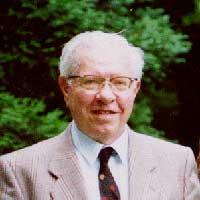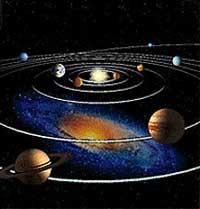The astronomer Fred Hoyle dies

Fred Hoyle has made important contributions to astronomy. In 1953 he announced that the carbon-12 element was formed inside the stars and observations made by Willian Fowler in 1957 proved the announcement. These two astronomers, together with Geofrey and Margaret Burbidge, published in 1957 the theory of nucleosynthesis of the elements. It stated that several elements heavier than helium (carbon, oxygen, lithium, iron) occur in the internal nuclear reactions of the stars. By exploiting the stars, the elements are dispersed throughout the universe and over time structures like the Solar System are created.
In 1983 Fowler received the Nobel Prize in Physics for his contributions to the synthesis of elements. Fred Hoyle no.
Nefasto
In addition to being a great physicist and astronomer, it was also a great destruction for his companions. In 1990, together with her companion Chandra Wickramashinge, in an article published in the journal Nature, they stated that solar storms could cause flu. And it is that Hoyle and Wickramashing have firmly defended that life is extraterrestrial. According to them, the universe is full of viruses and, in addition to the flu, AIDS and other diseases also come from space. They say that life itself has been developed from virus mutations from space and reject Darwin's theory of evolution.
In fact, in 1986 they published a book claiming the false fossil of reptile Archaeopterix, 60 million years ago. The fossil is a winged reptile that is taken as an example of evolution. Hoyle, for his part, said they are intentionally glued pieces. The book provoked a huge controversy and Hoyle and Wickramashinge were highly criticized. As for the debate, Hoyle said he might have used some sarcasm in the book.
The rival of the Big Bang theory

Together with Hermann Bondi and Thomas Gold, Hoyle published the "stationary universe theory" at the end of the 1940s. The theory proclaims that the universe has no beginning or end. Stars, planets, galaxies, and all bodies that make up the universe are created and disappear, but not the universe itself.
The Big Bang theory, which is accepted almost unanimously today, says that the universe arose in the explosion that occurred at a given time and has since been expanding. Before there was nothing. But Hoyle believes that if time and space did not exist, the Big Bang could not happen. Although in these 50 years many discoveries have been made in favor of the Big Bang theory, and although the theory is considered good, Hoyle has never accepted it. In 1992 he pointed out that he had aesthetic prejudices against this theory. The Big Bang theory owes its name to Hoyle. So he baptized it with truffle, but it has remained until today.
Fred Hoyle was born in 1915 and studied astronomy at the University of Cambridge. He was professor of astronomy from 1958 to 1972 and was one of the founders of the Cambridge Institute of Astronomy. He has won eleven awards and has written several sci-fi books.
Buletina
Bidali zure helbide elektronikoa eta jaso asteroko buletina zure sarrera-ontzian











